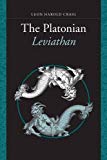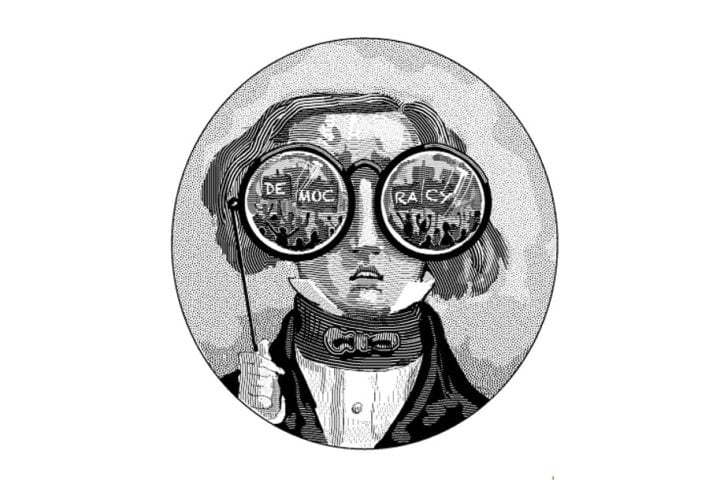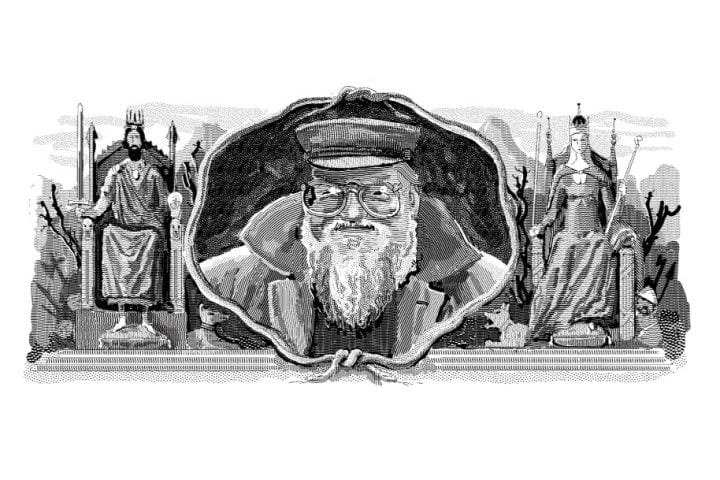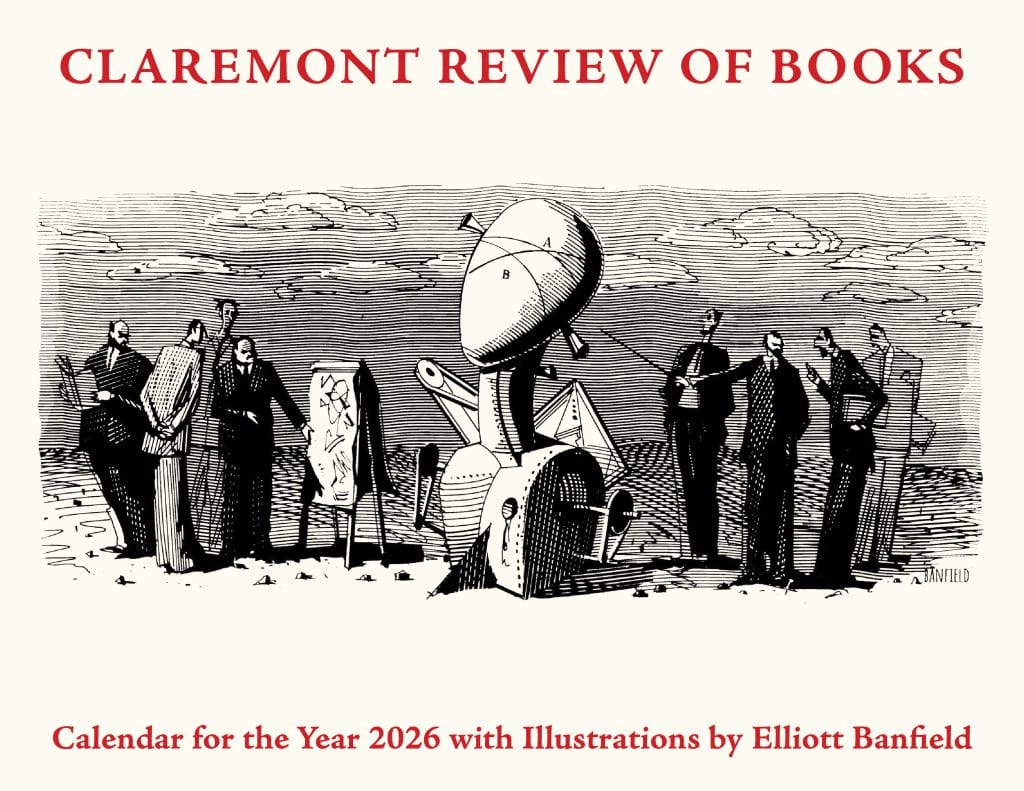Books Reviewed
A review of The Platonian Leviathan , by Leon Harold Craig
, by Leon Harold Craig
Leon Craig's The Platonian Leviathan is chiefly a study of Thomas Hobbes's 17th-century treatise Leviathan, although Craig supplements his argument with discussions of Plato's Republic, Herman Melville's Moby Dick, and Joseph Conrad's Heart of Darkness, and a brief essay on contemporary life. Melville supplies the book's title and Hobbes the thought behind it, while Craig, a professor emeritus of politics at the University of Alberta, seeks to clarify what Hobbes intended.
The book is quite long and Craig gives readers chiefly interested in Hobbes permission to skip the sections of Melville and Conrad. This still leaves a large work, but one of its closing chapters summarizes the basic argument clearly. Craig's major point is that Hobbes is closer to Plato (and even Aristotle) than he and his students have led us to believe, and, therefore, his argument that men are naturally equal is, in important respects, misleading folderol. The effect of Craig's bold thesis would be similar to learning that the village atheist is a secret Bible thumper, except that Craig "suspect[s] that Hobbes is not even a Deist, much less a sincere Christian."
There is much to learn from The Platonian Leviathan even if one admires the author's interpretive pyrotechnics only from a safe distance. His discussions of materialism, determinism, reason, language, Aristotle's understanding of causality, and Plato's Republic (especially his description of the divided line) are thoughtful and penetrating, and are independent of his most radical claims about Hobbes, making the book a valuable resource.
Craig gives readers good reasons to doubt materialism and Hobbes's belief in it, and argues that determinism is self-defeating because it contradicts the independence of what is true, as well as the claim that it or any doctrine is true. He examines the importance of recognition, division, and synthesis in order to show that Hobbes regarded reason as more than mere calculation. He explores the limits of Hobbes's stated view of language—examining, among other difficulties, how his emphasis on words as names ignores grammar.
In addition to these "metaphysical" questions—which Craig believes Hobbes thought were central and which he himself thinks are central—Craig criticizes what are usually taken to be the central elements of Hobbes's political philosophy. In the author's view, Hobbes distinguishes the state of nature simply from a state of nature that sometimes occurs after civil society exists, does not believe men to be fundamentally equal, thinks that nobility is as central if not as universal as the satisfaction of desire, considers natural justice and equity to exist before positive justice is legally enforced, and believes that a version of Plato's philosopher-king is needed to secure his commonwealth, or the best version of it. "For though the surface of Hobbes's teaching presumes that the common man is in fact the universality of men, the success of his project…depends crucially on harnessing the natural powers of uncommon men."
The Platonian Leviathan offers a penetrating explanation of Francis Bacon's view of science, to which, Craig argues, Hobbes subscribes. According to Craig, Hobbes wants to seem to be a Baconian metaphysically in order to vest his political prescription "with the…authority" of "the modern conception of science." He wishes to appear as a Baconian materialist and determinist in his political thought (even though he does not in fact hold these views) in order better to serve Bacon's political ends: harnessing science for "the Benefit of man-kind." Hence, his rhetorical misdirection.
* * *
It is not altogether clear which audience Craig believes Hobbes is seeking to mislead: it needs to be one sophisticated enough to be Baconian yet naïve enough to believe Hobbes's lies. Although Hobbes's religious misdirection is meant to serve his safety and the safety of his project, it is unlikely that the Baconians misled by his apparent Baconianism would also be misled by his seeming faith. In fact, Craig further complicates the issue by claiming that Leviathan's "deeper purpose" is to advance a regime that not only promotes technologically useful science but is also "hospitable to philosophy in the ancient style," i.e., to "the pursuit of knowledge for its own sake."
Craig believes that the Hobbessian-Baconian commonwealth depends on inequality: equality under the law allows each to rise to the level of his own natural talent, and the levels vary. The Hobbesian regime also allows those who are noble—i.e., those who are not hedonists—to serve the public in war and elsewhere. Moreover, despite Hobbes's seeming relativism, he does not believe the value of his commonwealth to be variable or questionable.
Craig's method in several of these discussions is to try to make the shortcomings of Hobbes's view so plain, and the merits of his own contrary view so clear, that one ought to doubt that Hobbes actually holds the views he is normally thought to hold:
Thus, it is not "free will" that is self-contradictory, but the denial of it. Rationally speaking, that is. Could Hobbes really have supposed otherwise? That is hard to believe.
Craig then proceeds to gather whatever affirmative evidence he can, even when it is inconclusive: "a careful consideration of what [Hobbes] actually says raises more doubt than validation that he himself subscribed to what is generally taken to be his teaching." Although Craig is sometimes circumspect in ascribing his Platonic alternatives to Hobbes, it occasionally seems that the author is so sure of his arguments that he doubts anyone with intelligence could seriously hold the contrary. Thus, Hobbes could not seriously have believed anything Craig doubts.
* * *
I wonder if Craig sometimes finds contradictions where it might be more modest to point instead to difficulties. He makes much of the supposed split between Hobbes's claim that we have a natural right to do or not do what we believe is conducive to our good, and his claim that natural law obliges us always to seek our preservation. The difference between the natural and civil state, and the vagaries of our judgments, however, suggest ways to resolve apparent tensions other than the duplicity Craig proposes. In general, moreover, I believe that Craig does not press the ways that egoism and hedonism can secure some of the attention to others that he believes Hobbes understands to be politically necessary. It suffices to mention the operation of economic markets, thoughtful calculations of self-interest, and virtues such as responsibility.
Craig also does not have much to say about the connection between desire and motion, about the nature of pleasure, or about the emptiness of the flight from death, perhaps because his Hobbes is less a foe of teleology than he is usually thought to be. For all these reasons Craig perhaps jumps too quickly to rhetorical solutions to the difficulties he finds. To learn from Hobbes we should follow him as far as we can. That said, one should not discount what Craig so intelligently brings out, or ignore the possibility that the main line of his argument is correct.
* * *
Craig's approach underplays the Leviathan's structure—the treatise begins with a part on Man and concludes with one on the Kingdom of Darkness. Hobbes's approach is not Plato's dialectical approach, nor Aristotle's. It begins with the individual apart from politics. Craig does not examine the manner in which basing politics on individuals is coordinated with understanding happiness as fundamentally non-political, i.e., as the satisfaction of desire.
I also believe he is too sanguine on Hobbes's behalf—and this despite his own concerns about our current age—concerning the equality of opportunity he believes is so central in Hobbes's Baconian politics. Democracies tend to lower the overall level even if they allow many to rise to their own level. Democratic equalizing to a degree flattens and vulgarizes even when it is not dominated by resentment.
Leon Craig's The Platonian Leviathan is always thoughtful and refreshing in what it says about Hobbes, metaphysical issues, and the works of Melville and Conrad. Its subtle and learned arguments are worth pondering; there is much to learn from Craig about the matters he discusses.







